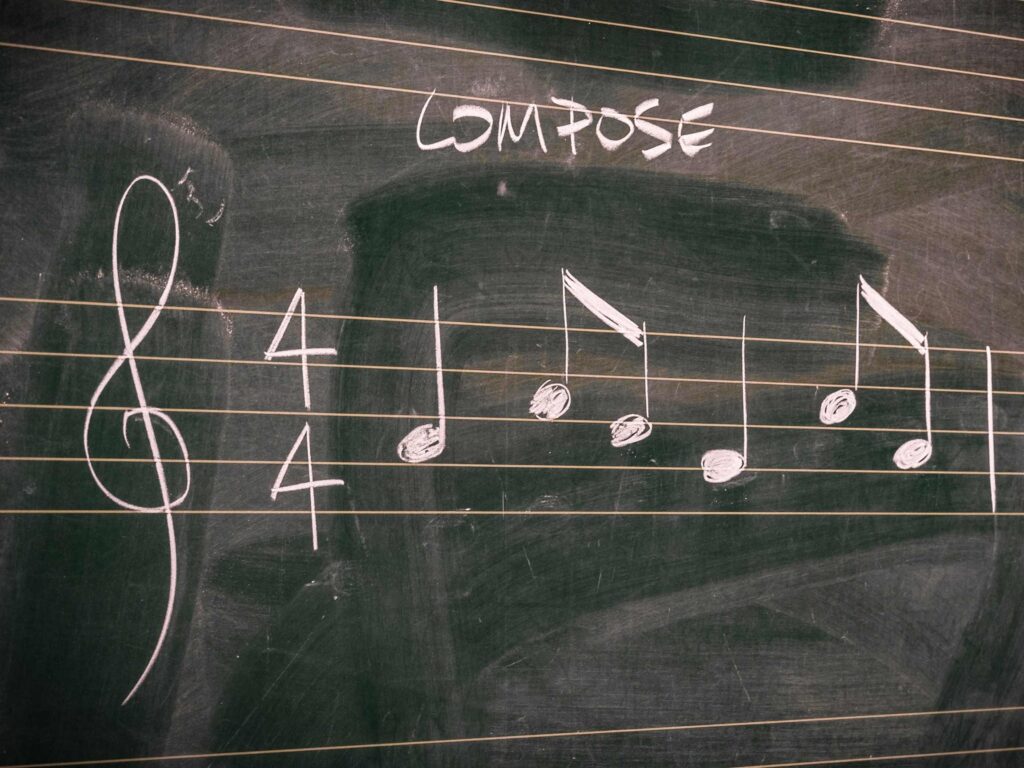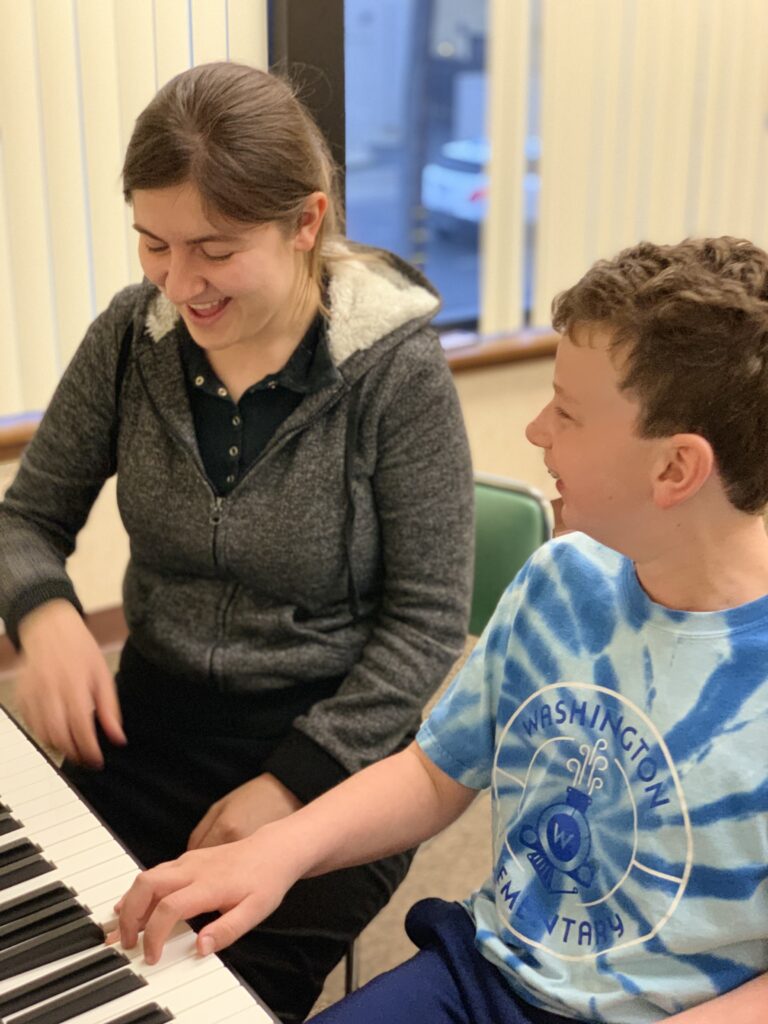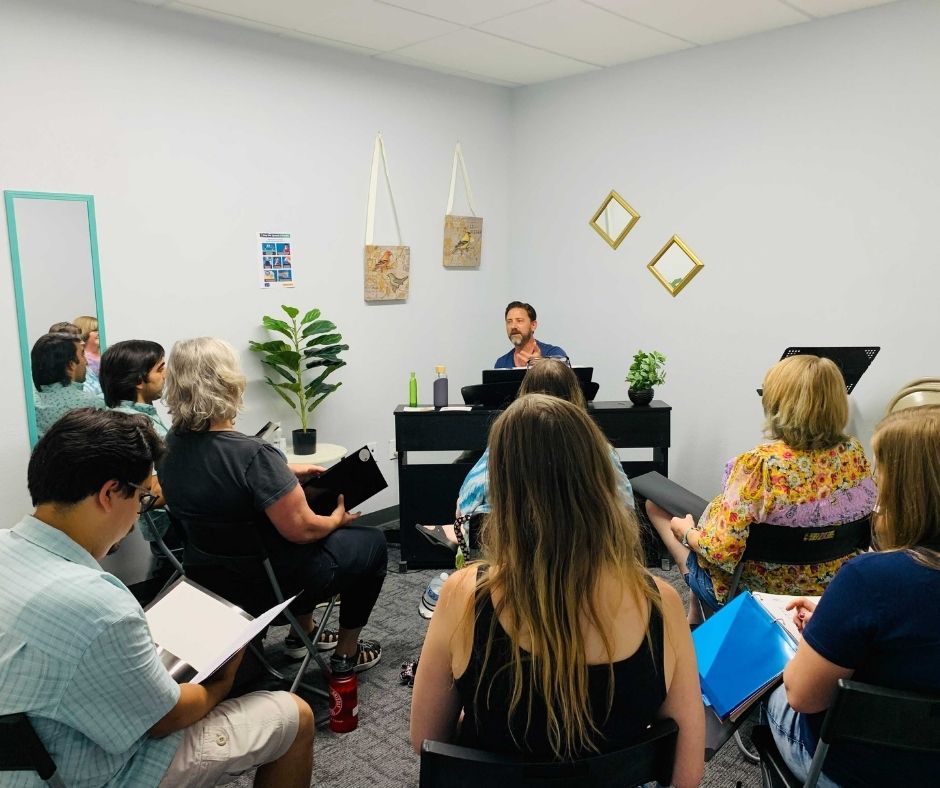
With arts programs being canceled across the nation, many people are left asking themselves: What are the benefits of studying music?
Music has existed since the beginning of time as a way for humans to express themselves and a way to communicate.
Additionally, music is known to benefit bot emotional psych and development of humans.
Music also heightens math, language, memory, and spatial awareness.
So, why would we cancel music programs if they are proven to enhance learning capabilities? Simply because these programs are misunderstood and therefore undervalued.
Understanding the benefits of studying music is essential in creating and developing a healthy society that is robust, diverse, and values the effects of studying music as much as the enjoyment.
Here are six benefits for studying music:
- Creative outlet
- Increased math awareness
- Language development
- Memory skills
- Spatial learning
- Discipline
1. Music Develops a Creative Outlet

Music is a great outlet for creativity. One of the benefits of studying music is that it allows people to express themselves in ways they wouldn’t ordinarily have the chance to.
Additionally, music creativity has been proven to alleviate stress and anxiety.
Therefore, exposing students to music as a creative outlet allows them to learn how to manage their stress in healthy ways at a young age.
Additionally, creative minds have been linked with being better at problem solving and higher level thinking.
In summary, music creativity goes far beyond tinkering with sounds and noises. It extends to changing the person who creates.
2. Music Develops Math Awareness

Our modern society is dominated by science and technology.
Gadgets and gizmos are being invented left and right.
It can be easy to categorize music outside of the STEM side of things. However, studying music and music theory has had a direct correlation to higher math skills and development.
It is not uncommon to find musicians in some of the highest level math courses.
In fact, many former musicians go on to work as code breakers due to their enhanced ability to find patterns and numbers.
Beautiful minds are not always made in front of a calculator, sometimes they are developed in front of a piano.
3. Studying Music Helps Language Development

Studying music has been linked with an increase in language skills.
This is partially because studying music in a formal setting also heavily uses the left side of your brain which is the side of the brain that powers logic and communication.
Music is its own language
Similar to mathematics, music is its own language and can be understood universally.
Additionally, it combines various countries and languages into its standard repertoire.
That means the odds of students reading music with dynamics in different languages are high.
Musicians visualize, speak, and listen to a multitude of languages at any given moment. They are more apt at distinguishing languages from one another and can easily pick them up.
Bonus benefit for studying music: the exposure to other languages
Musicians are exposed to other international languages such as French, Italian, German, Russian, and Latin.
This type of exposure allows for language development skills to blossom. This can be beneficial for many adults who are looking to gain more language experience, but developmentally striking for kids taking music lessons.
4. Studying Music Enhances Memorization Skills


A significant part of studying music involves memorization.
Your fingers will need muscle memory in order to find the keys for each octave without glancing down or from side to side along the piano.
Scales and rudiments also require memory.
Scales have individual pitches and tones that rely on the musician transitioning smoothly between the octaves.
While you can read scales from a book initially, it is ideal for them to be memorized.
These rudiments will appear throughout various pieces and allows musicians to find patterns and puzzles, further relying on their memory skills to draw on what they know.
Memory comes into play as students age and go on to learn new academics.
These skills enable students to have an easier time retaining information and studying it later.
Additionally, exercising your memory has been shown to lessen your chances of developing Alzheimer’s later in life.
5. Studying Music Develops Spatial Learning
Spatial learning is a hot word amidst youngsters. It is the ability to have an awareness for the environment which surrounds you.
Spatial learning extends to things such as reasoning, comprehension, and the cognitive developmental process.
This is essential when toddlers are learning to walk or grasping objects in their near vicinity. It comes into play as adults when we begin driving or operating vehicles. In turn, it helps us to perform everyday tasks to the best of our ability.
6. Studying Music Develops Discipline

Music is a hobby that requires a lot of attention and discipline.
It is nearly impossible to learn an instrument or piece of music without discipline.
Musicians have to be disciplined and dedicated to practice daily and to be willing to take advice from others who have more experience than them.

Discipline Through Private Music Lessons
Most musicians enter private lessons in order to advance their ability levels. Private lessons require a significant amount of discipline.
Typically, students will see their instructor once a week. However, the majority of discipline, growth and development takes place at home, alone.
Discipline Through Repetition
Learning music requires repetition. Students learn how to grapple with the repetitiveness of practice, even when it is boring. They also learn how to deal with frustration in isolation through which musicians further develop the desire to learn and grow. This ability to gain self-discipline easily transcends into other areas of their lives and especially the disciplined use of their emotional intelligence.
Recapping the multiple benefits of studying music
Music has been celebrated and enjoyed over decades of generations and societies. It has given people great joy and been a tool to connect people to one another. There’s no denying music’s ability to entertain. Music develops the mind and enhances learning. Academics as well as behavioral and emotional facets are deeply. Music requires students to be dedicated and teaches them discipline.
At Martucci Music, we teach students the value of studying music and guide students through developing themselves through music in areas of self-confidence, self-esteem, and creativity.
That’s why we always say…
It’s more than just music at Martucci Music. It’s a commitment to “Self”
Interested in signing up for a trial music lesson?
Trial Lesson Includes:
• A full 30min private session.
• Meet your instructor.
• Ask all of your questions.
• Sample a lesson with them.
• Get a professional assessment of your current technical skills.
• Walk away with a plan for what future tailored lessons would look like for you.